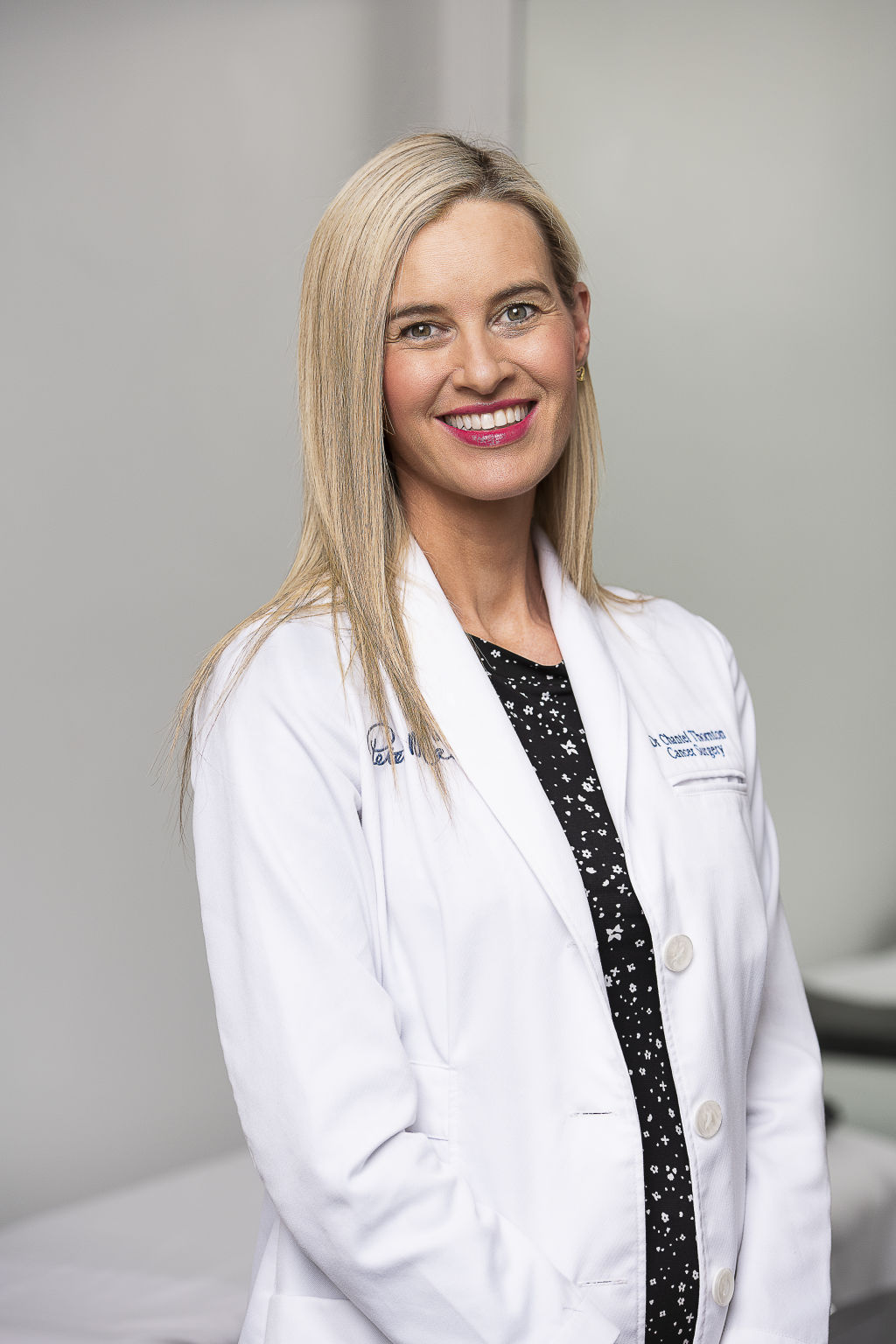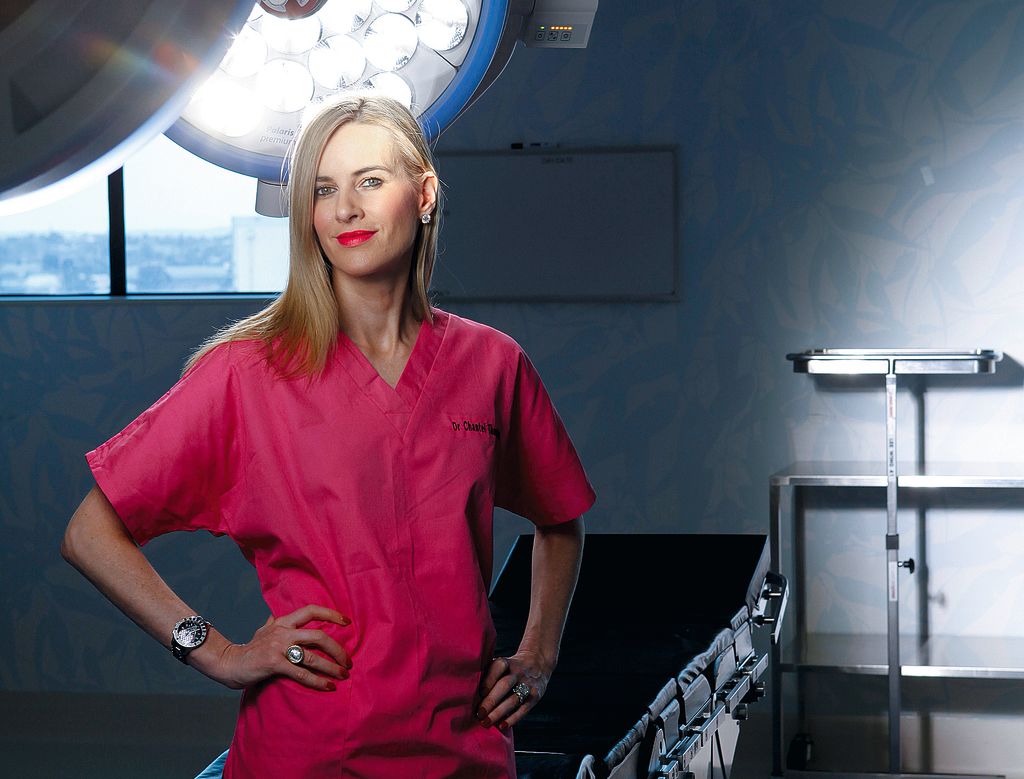Women's health: Melbourne surgeon Dr Chantel Thorton's breast checklist

The COVID-19 pandemic will force people to take a breath, reassess their own health and get back to basics, says Melbourne breast cancer specialist Dr Chantel Thornton.
Here, the leading breast cancer surgeon shares her advice on what women can do, while wellbeing is top of mind, to monitor their breast health and reduce their risk of breast cancer.
“Get off the grid and grow your own vegetables. Don’t be so engrossed in modern lifestyle,” she said.
The Melbourne-based specialist, who works at the Epworth Hospital in Richmond and Peter MacCallum Cancer Centre, says making adjustments to your diet, exercising, limiting alcohol intake, understanding your family history and avoiding the contraceptive pill if aged over 40, can all reduce your risks.

“Overall, more people die of heart disease than they do of breast cancer,” Dr Thornton says.
“Breast cancer survival sits at 92 per cent with early detection the key.
“People need to change their lifestyle, and there is no reason why women diagnosed with breast cancer early shouldn’t live a fruitful life. The statistics show us that the disease is becoming more prevalent in higher socio-economic classes, and what we will see in the future is people living with it, but won’t be dying from it.”
Dr Thornton is prominent on the speaking circuit, sharing her insights with women of all ages, including at this year’s Mercedes Me International Women’s Day In-Conversation forum.
DIET
ADVICE: Keeping yourself healthy means you should be eating five serves of vegetables a day and two serves of fruit. Dr Thornton says to reduce your saturated fats intake, too. Cook at home and avoid take-out food, as well.
EXERCISE
ADVICE: There are many lifestyle related changes women can make – ensuring you stay within a healthy BMI – that’s 20 to 25 – is imperative. “There’s evidence available that states doing so does minimise your risk of breast cancer,” she says. Dr Thornton suggests you aim for 240 minutes of exercise a week. This includes 150 minutes of aerobic and 90 minutes of core or strength type work.
SMOKING
ADVICE: This one’s pretty obvious. Don’t do it. Smoking causes many types of cancer; including breast cancer. “Cigarettes increase the risk of every type of cancer so it’s important people stop,” Dr Thornton says. “If you do smoke and have breast cancer, from a surgery point of view you increase the risk of complication after surgery and infection risk to the wound.”
ALCOHOL
ADVICE: Dr Thornton says the Cancer Council launched new alcohol initiatives on April 22. She says Australia has been behind other countries in its advice messaging, but says the overall message is that alcohol does affect cancer risk. “Current guidelines says no more than two glasses on four days a week and you must have three alcohol-free days. I’d say if you avoid it altogether, that is good.”
CONTRACEPTIVE PILL
ADVICE: Dr Thornton encourages women over 40 to avoid the pill and look for other means to protect against pregnancy. She says not exposing yourself to estrogen after the age of 40 is imperative in minimising breast cancer risk.
DURING MENOPAUSE
ADVICE: Dr Thornton recommends using hormone replacement therapy (HRT) and/or the combined HRT (comprising estrogen and progestogen) for a short time only – no more than five years.
RADIOTHERAPY
ADVICE: Try to limit your radiotherapy where possible, especially to your main chest area, particularly for those who need this for lymphoma. It does affect breast cancer risk so avoid having too much. This may raise concerns for women who have regular mammograms, but Dr Thornton says getting one done over 45 is important. It’s those under this age who do not require one yearly. “We don’t want women under that age having them too often,” she says.
KNOW YOUR HISTORY
ADVICE: It’s important to know what’s happening to the women in your family – from your mother to sisters, maternal and paternal grandmothers and aunts.
STRESS AND ANXIETY
ADVICE: Dr Thornton says while there’s no proven evidence that stress and anxiety affect your breast cancer risk, she says the next five to 10 years we will find out more about this link. If you can minimise and manage then you’re better off.
The advice in this story is general in nature and does not take into account individual circumstances, and is intended to create awareness and encourage you to speak to your doctor.
We recommend
States
Capital Cities
Capital Cities - Rentals
Popular Areas
Allhomes
More







